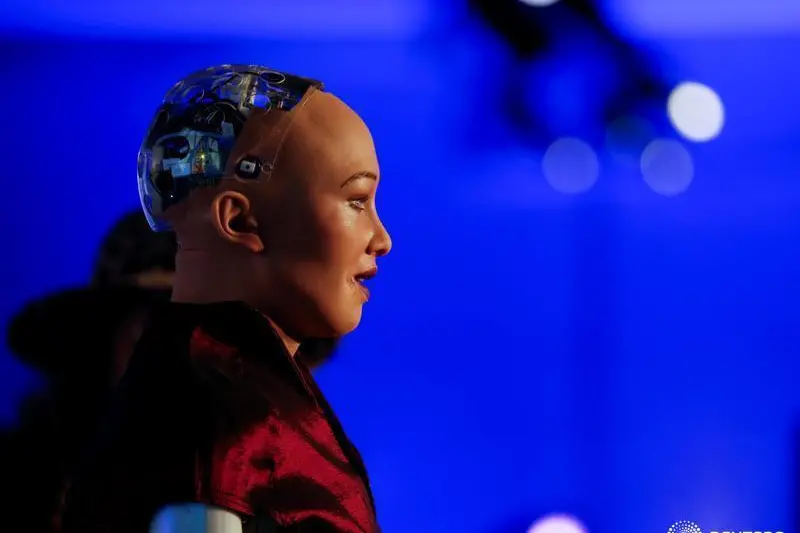PHOTO
Over next three decades, new technologies are expected create jobs that do not exist today.
The findings of a new study titled ‘Future Skills for Business’ by British multinational defence, security and aerospace company BAE Systems were that 47 percent of the people aged between 16 and 24 believe that one day they will work in a role that doesn’t exist yet.
“Only 18 percent think they are equipped with the skills required to future-proof their careers and 74 percent feel that they are not getting enough information about careers that will be available in the future,” said the study.
Emerging technologies such as virtual reality (VR), artificial intelligence (AI) and robotics will influence the jobs we do in the future, according to a team of leading futurists. “Areas to study in school to future-proof students for successful careers include robotics, graphic design and philosophy,” it said.
Though futurists and technologists have offered their recommendations for the job market, they do not have a crystal ball. “Advances in technology, engineering and science mean the workplace of today will look dramatically different in 2040,” said Nick Colosimo, Principal Technologist at BAE Systems.
While it’s impossible for today’s young people to know exactly where their career will take them in the next 20 years, subjects as varied as graphic design, philosophy, chemical engineering and cybersecurity will prove valuable for the jobs of tomorrow, he added.
Here are the top job roles the futurists and technologists have predicted will likely exist by the year 2040 and the areas of study that students should pursue to equip themselves with the relevant skills.
AI Ethicist
As AI is trusted to make more complex decisions, it will become essential that it is programmed, deployed and maintained responsibly. An AI ethicist’s role will be to ensure that AIs are underpinned by robust ethics, do not display biases and do not deviate from serving the needs of an organisation.
According to Microsoft CEO Satya Nadella, an AI ethicist will help augment human capabilities through AI and will help build trust in intelligent solutions and products.
Areas of study: Philosophy, history, mathematics
Auto-Advisor
As organisations increasingly turn to robotic automation, robots will take more of a one-size-fits-all form that equips them to take on a number of different tasks. An auto-advisor will provide advice to companies on where robotic automation can be applied, ensure the automated workforce is in line with official guidelines and identify opportunities for upgrades to surpass existing limitations and be as effective as possible working alongside humans.
An auto-advisor will also ensure efficiency in maximizing potential of automation and achieving quality products and services.
Areas of study: Robotics, mechanical engineering, physics
VR Architect
As vehicles of all kinds become more complex, ‘digital twins’ could be created so AI modelling can be used to accurately predict which parts need maintenance remotely. VR architects will be responsible for using virtual and augmented reality to map and monitor the lifespan of the component parts within the vehicle so that it can be managed as effectively and safely as possible. A VR architect will also assist in integrating cutting-edge 3D printing technology in production or services processes.
Areas of study: Graphic design, information technology
Systems Farmer
Technologists are on the verge of a revolution in synthetic biology and chemical engineering in production. We will soon, for instance, be ‘growing’ macroscale multi-function aircraft parts with desirable nanoscale features. Known as ‘chemputing’, a mix of chemical engineering and computing, these component parts can sense, process and harvest energy. They will also be super strong, perhaps even capable of self-repair. Chemputing could also be used in bespoke drug production, gene therepy, etc.
Areas of study: Chemistry, Biology, Chemical Engineering, Medical Sciences
Human e-Sources Manager
A Human e-sources manager will use performance-based wearables or e-textiles to measure data such as cognitive workload, wellbeing and output on an ongoing basis. They could be the first to identify an employee who is becoming ill; they may also respond to other medical indicators to offer occupational support or additional training to deal with potential stressful situations.
Data analysis of wearables will be used to increase productivity and training of employees, enabling the human e-sources manager to be more effective.
Areas of study: Psychology, biology, medical sciences
AI Translator
As work performed by humans and robots together, called ‘cobotics’, becomes more intertwined, the AI translator will be responsible for training both the human and the AI assistant, helping them develop an effective ‘team’ relationship. This will involve tuning the AI assistant, tailoring it to the human worker’s personalised needs while watching out for and correcting errors, machine or human.
Areas of study: Cybersecurity, IT, Mechanical Engineering
(Writing by Syed Atique Hussain, editing by Seban Scaria
Our Standards: The Thomson Reuters Trust Principles
Disclaimer: This article is provided for informational purposes only. The content does not provide tax, legal or investment advice or opinion regarding the suitability, value or profitability of any particular security, portfolio or investment strategy. Read our full disclaimer policy here.
© ZAWYA 2019




















